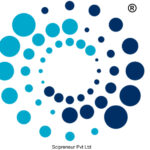
Biologics License Application is Accepted by FDA for Avelumab for the Treatment of Metastatic Merkel Cell Carcinoma
- If approved by the FDA, avelumab, an investigational immunotherapy, could be the first treatment indicated for patients with metastatic Merkel cell carcinoma (MCC)
- Avelumab has previously received FDA Breakthrough Therapy and Fast Track Designations for metastatic MCC, as well as FDA Orphan Drug Designation for MCC
EMD Serono Inc., the biopharmaceutical business of Merck KGaA, Darmstadt, Germany, in the US and Canada, and Pfizer Inc. (NYSE: PFE(link is external)) today announced that the US Food and Drug Administration (FDA) has accepted for Priority Review EMD Serono’s Biologics License Application (BLA) for avelumab. This review relates to avelumab’s proposed use in patients with metastatic Merkel cell carcinoma (MCC), based on tumor response results from the JAVELIN Merkel 200 trial. Avelumab is an investigational fully human anti-PD-L1 IgG1 monoclonal antibody and could be the first treatment indicated for metastatic MCC in the US, if approved.[*] MCC is a rare and aggressive skin cancer, which impacts approximately 2,500 Americans a year.[1],[2]
“We are pleased the FDA has granted a Priority Review designation for avelumab,” said Luciano Rossetti, M.D., Executive Vice President, Global Head of Research & Development at the biopharma business of Merck KGaA, Darmstadt, Germany, which in the US and Canadaoperates as EMD Serono. “There are currently no approved treatment options for metastatic MCC, and we are committed to working with the FDA to potentially bring the first approved cancer immunotherapy to patients with this aggressive disease.”
The avelumab metastatic MCC BLA submission is supported by data from JAVELIN Merkel 200, a multicenter, single-arm, open-label, Phase II study of 88 patients with metastatic MCC, whose disease had progressed after at least one chemotherapy treatment.[1] The JAVELIN Merkel 200 study represents the largest data set of any anti-PD-L1/PD-1 antibody reported in this patient population. These data were presented in June 2016 at the Annual Meeting of the American Society of Clinical Oncology (ASCO) and published in the Lancet Oncologyin October 2016.[1]
“Metastatic Merkel cell carcinoma is an aggressive disease, and patients face a very poor prognosis, with less than 20 percent surviving beyond five years,” said Chris Boshoff, M.D., Ph.D., Senior Vice President and Head of Immuno-oncology, Early Development and Translational Oncology, Pfizer Global Product Development. “We are encouraged by the results of our Phase II trial and believe avelumab may have potential to be an important treatment option for patients living with this hard-to-treat skin cancer.”
The FDA’s Priority Review status reduces the review time from 10 months to a goal of six months from the day of filing and is given to drugs that may offer major advances in treatment or may provide a treatment where no adequate therapy exists. The FDA previously granted avelumab Orphan Drug Designation for MCC, as well as Fast Track and Breakthrough Therapy Designations for the treatment of patients with metastatic MCC whose disease has progressed after at least one previous chemotherapy regimen. Breakthrough Therapy Designation is intended to expedite the development and review of treatments for serious or life-threatening disease where preliminary clinical evidence indicates that the drug may demonstrate substantial improvement over existing therapies for one or more endpoints.[3] Additionally, the European Medicines Agency has validated for review Merck KGaA, Darmstadt, Germany’s Marketing Authorization Application (MAA) for avelumab, for the proposed indication of metastatic MCC.
The clinical development program for avelumab, known as JAVELIN, involves at least 30 clinical programs and more than 3,000 patients evaluated across more than 15 different tumor types. In addition to metastatic MCC, these cancers include breast, gastric/gastroesophageal junction, head and neck, Hodgkin’s lymphoma, melanoma, mesothelioma, non-small cell lung, ovarian, renal cell carcinoma and urothelial (primarily bladder).
*Avelumab is not approved for any indication in any market. This marks the first acceptance of an application by the US FDA to review the investigational product, avelumab.
References
- Kaufman HL, et al. Avelumab in patients with chemotherapy-refractory metastatic Merkel cell carcinoma: a multicentre, single-group, open-label, phase 2 trial. Lancet Oncology. 2016;17(10);1374-85.
- Fitzgerald T et al. Dramatic increase in the incidence and mortality from Merkel cell carcinoma in the United States. The American Journal of Surgery. 2015;81(8):802-6.
- FDA. Priority Review. http://www.fda.gov/ForPatients/Approvals/Fast/ucm405405.htm(link is external). Last accessed October 2016.
- National Cancer Institute. Merkel cell carcinoma treatment-patient version (PDQ®). http://www.cancer.gov/types/skin/patient/merkel-cell-treatment-pdq(link is external). Last accessed October 2016.
- American Cancer Society. What is Merkel cell carcinoma? http://www.cancer.org/cancer/skincancer-merkelcell/detailedguide/skin-cancer-merkel-cell-carcinoma-what-is-merkel-cell-carcinoma(link is external). Last accessed October 2016.
- Desch L and Kuntsfeld R. Merkel cell carcinoma: chemotherapy and emerging new therapeutic options. Journal of Skin Cancer. 2013(2013):327150.
- Heath M, Jaimes N and Lemos B. Clinical characteristics of Merkel cell carcinoma at diagnosis in 195 patients: the AEIOU features. Journal of the American Academy of Dermatology. 2008;58:375-81.
- Poulsen M. Merkel cell carcinoma of skin: diagnosis and management strategies. Drugs Aging. 2005;22(3):219-29.
- Swann MH and Yoon J. Merkel cell carcinoma. Seminars in Oncology. 2008;34(1):51-56.
- NCCN Merkel Cell Carcinoma Guidelines version I. 2017. http://www.nccn.org/professionals/physician_gls/PDF/mcc.pdf(link is external). Last accessed October 2016.
About Metastatic Merkel Cell Carcinoma (MCC)
Metastatic MCC is a rare and aggressive disease in which cancer cells form in the top layer of the skin, close to nerve endings.[1],[4] MCC, which is also known as neuroendocrine carcinoma of the skin or trabecular cancer, often starts in those areas of skin that are most often exposed to the sun, including the head and neck, and arms.[5] Risk factors for MCC include sun exposure and having a weak immune system (i.e., solid organ transplant recipients, people with HIV/AIDS and people with other cancers, such as chronic lymphocytic leukemia, are at higher risk). Caucasian males older than 50 are at increased risk.[5] MCC is often misdiagnosed for other skin cancers and grows at an exponential rate on chronically sun-damaged skin.[6]-[9] Current treatment options for MCC include surgery, radiation and chemotherapy.[10] Treatment for metastatic or Stage IV MCC is generally palliative.
About Avelumab
Avelumab (also known as MSB0010718C) is an investigational, fully human anti-PD-L1 IgG1 monoclonal antibody. By inhibiting PD-L1 interactions, avelumab is thought to enable the activation of T-cells and the adaptive immune system. By retaining a native Fc-region, avelumab is thought to potentially engage the innate immune system and induce antibody-dependent cell-mediated cytotoxicity (ADCC). In November 2014, Merck KGaA, Darmstadt, Germany, and Pfizer announced a strategic alliance to co-develop and co-commercialize avelumab. In the JAVELIN Merkel 200 trial, treatment-related adverse events (AEs) occurred in 62 (70%) of 88 patients including fatigue and infusion-related reactions. Five grade 3 treatment-related AEs were reported in four of 88 patients and include two patients with lymphopenia and three patients with isolated laboratory abnormalities (elevated blood creatine phosphokinase, blood cholesterol, and hepatic aminotransferase).[1] There were no grade 4 treatment-related AEs or deaths related to treatment.[1]
EMD Serono Inc.
Media Melissa Lauer +1 781 738 5673
Investor Relations +49 6151 72 3321
Pfizer Inc., New York, USA
Media
Sally Beatty +1 212 733 6566
Investor Relations
Ryan Crowe +1 212 733 8160







Leave a Reply